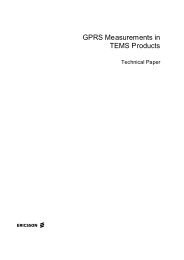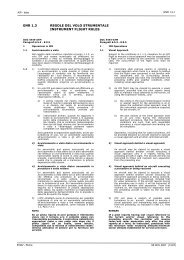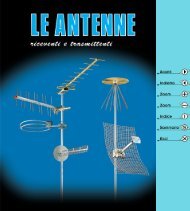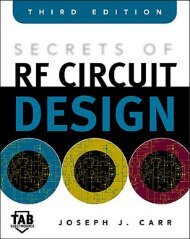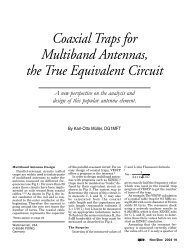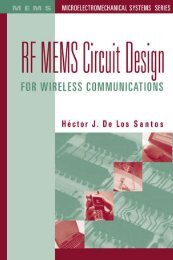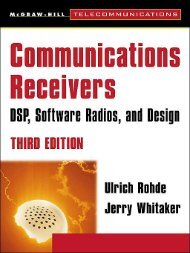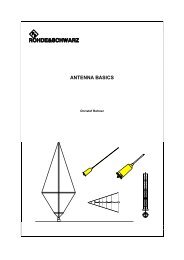Code and ciphers: Julius Caesar, the Enigma and the internet
Code and ciphers: Julius Caesar, the Enigma and the internet
Code and ciphers: Julius Caesar, the Enigma and the internet
Create successful ePaper yourself
Turn your PDF publications into a flip-book with our unique Google optimized e-Paper software.
6<br />
chapter 1<br />
Historically, two basic ideas dominated cryptography until relatively<br />
recent times <strong>and</strong> many cipher systems, including nearly all those considered<br />
in <strong>the</strong> first 11 chapters of this book were based upon one or both of<br />
<strong>the</strong>m. The first idea is to shuffle <strong>the</strong> letters of <strong>the</strong> alphabet, just as one<br />
would shuffle a pack of cards, <strong>the</strong> aim being to produce what might be<br />
regarded as a r<strong>and</strong>om ordering, permutation, or anagram of <strong>the</strong> letters.<br />
The second idea is to convert <strong>the</strong> letters of <strong>the</strong> message into numbers,<br />
taking A�0, B�1, ..., Z�25, <strong>and</strong> <strong>the</strong>n add some o<strong>the</strong>r numbers, which<br />
may <strong>the</strong>mselves be letters converted into numbers, known as ‘<strong>the</strong> key’, to<br />
<strong>the</strong>m letter by letter; if <strong>the</strong> addition produces a number greater than 25<br />
we subtract 26 from it (this is known as (mod 26) arithmetic). The resulting<br />
numbers are <strong>the</strong>n converted back into letters. If <strong>the</strong> numbers which have<br />
been added are produced by a sufficiently unpredictable process <strong>the</strong><br />
resultant cipher message may be very difficult, or even impossible, to<br />
decrypt unless we are given <strong>the</strong> key.<br />
Interestingly, <strong>the</strong> <strong>Julius</strong> <strong>Caesar</strong> cipher, humble though it is, can be<br />
thought of as being an example of ei<strong>the</strong>r type. In <strong>the</strong> first case our ‘shuffle’<br />
is equivalent to simply moving <strong>the</strong> last three cards to <strong>the</strong> front of <strong>the</strong> pack<br />
so that all letters move ‘down’ three places <strong>and</strong> X, Y <strong>and</strong> Z come to <strong>the</strong><br />
front. In <strong>the</strong> second case <strong>the</strong> key is simply <strong>the</strong> number 3 repeated indefinitely<br />
– as ‘weak’ a key as could be imagined.<br />
Translating a message into ano<strong>the</strong>r language might be regarded as a<br />
form of encryption using a code-book (i.e. dictionary), but that would<br />
seem to be stretching <strong>the</strong> use of <strong>the</strong> word code too far. Translating into<br />
ano<strong>the</strong>r language by looking up each word in a code-book acting as a dictionary<br />
is definitely not to be recommended, as anyone who has tried to<br />
learn ano<strong>the</strong>r language knows.* On <strong>the</strong> o<strong>the</strong>r h<strong>and</strong> use of a little-known<br />
language to pass on messages of short term importance might sometimes<br />
be reasonable. It is said, for example, that in <strong>the</strong> Second World War<br />
Navajo Indian soldiers were sometimes used by <strong>the</strong> American Forces in<br />
<strong>the</strong> Pacific to pass on messages by telephone in <strong>the</strong>ir own language, on <strong>the</strong><br />
reasonable assumption that even if <strong>the</strong> enemy intercepted <strong>the</strong> telephone<br />
calls <strong>the</strong>y would be unlikely to have anyone available who could underst<strong>and</strong><br />
what was being said.<br />
* I recall a boy at school who wrote a French essay about a traveller in <strong>the</strong> Middle Ages<br />
arriving at an inn at night, knocking on <strong>the</strong> door <strong>and</strong> being greeted with <strong>the</strong> response<br />
‘What Ho! Without.’ This he translated as ‘Que Ho! Sans.’ The French Master, after a<br />
moment of speechlessness, remarked that ‘You have obviously looked up <strong>the</strong> words in<br />
<strong>the</strong> sort of French dictionary <strong>the</strong>y give away with bags of sugar.’





